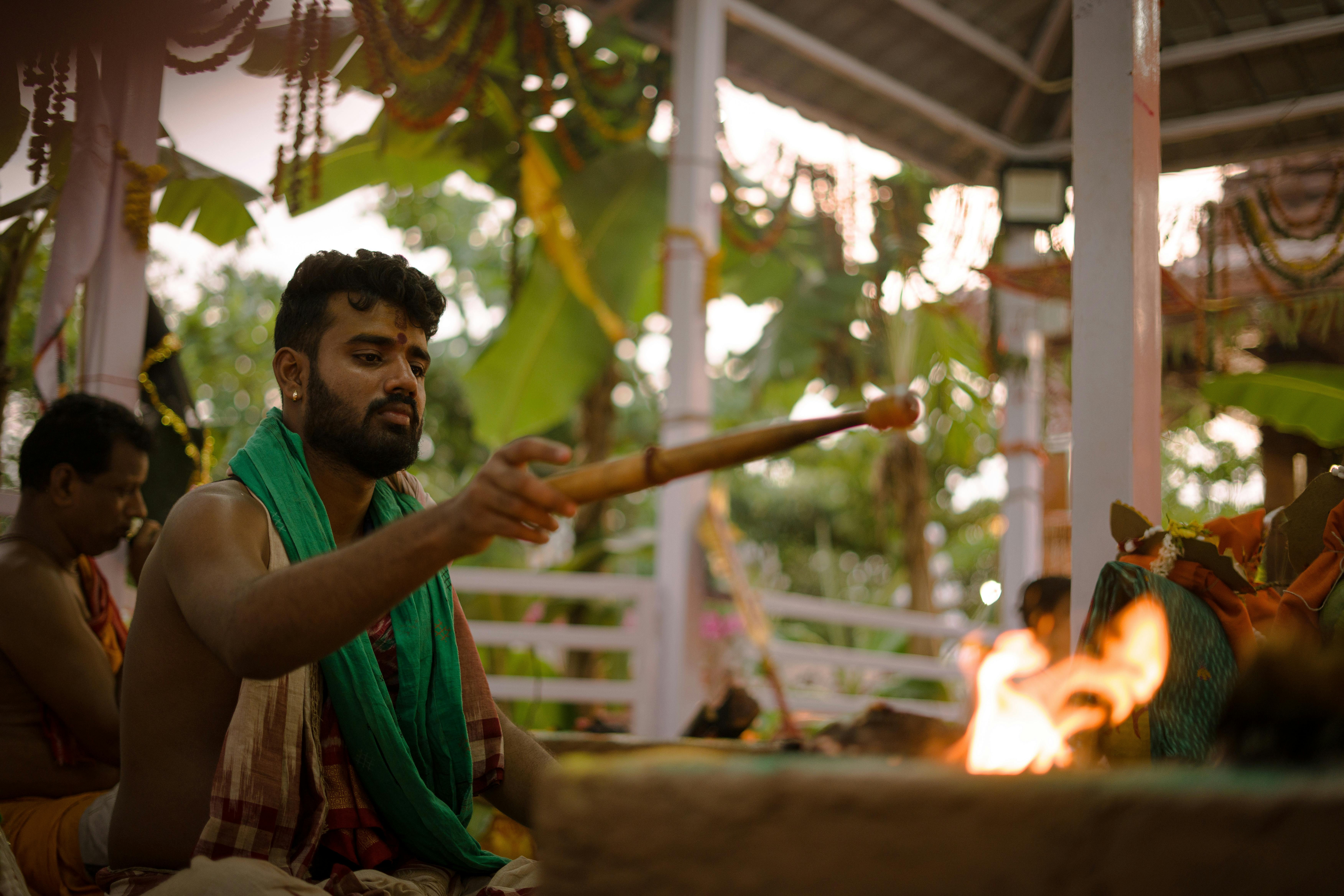By the Sanathan Dharma rules, reflection is an integral part of one’s life. During the sacred Pitru Paksha, the air in every Sanathan household is sombre, and they are in deep reflection. It is fitting that Pitru Paksha, translated to “Fortnight of the ancestors”, is dedicated to remembering and honouring the ancestors. It is not a festival of celebrations. Instead, it is a time to pause, to pray, and to express gratitude.
What Is Pitru Paksha?
Pitru Paksha falls in the second half of the lunar month Bhadrapada, which corresponds to the Hindu calendar, between August and September. These fifteen days are to slow down and set aside to remember our ancestors by performing the sacred rituals of Shraadh and Pind Daan, for the peace of the departed souls.The fortnight starts with the Shukla Paksha and ends with the Krishna Paksha. Every day of the fortnight is dedicated to ancestors who have passed on, on that particular thithi. The departed souls return to the Earthly plane in their presence to grace us with their blessings. In return, we welcome them with grace, gratitude, offerings and gentle remembrance.

The Deeper Meaning
Our scriptures highlight the responsibilities of the living, especially of the debt they carry from their ancestors. This is known as Pitru Rina. Understanding Pitru Rina gives a deeper meaning to the rituals of the Pitru Paksha. It is the continuation of the connection beyond the physical realm. It can be understood through the very action of offering food, water and prayers during this sacred fortnight. These rituals help one connect with the soul by saying, “ I have not forgotten you”. These are simple yet profound acts that hold such great spiritual power. These actions nourish the souls of the ancestors and bring peace to the ones performing them as well.
Who all are our Pitrus?
In Sanatan Dharma, the word “Pitru” carries far more meaning than just a biological parent. Our scriptures remind us that many shape our lives, those who nourish, teach, protect, and uplift us. The following verse from our shastras beautifully illustrates this:
जनिता च, उपनेता च, यश्च विद्या प्रयच्छति।
अन्नदाता भयत्राता पञ्चैते पितरः स्मृताः॥
"One who gives birth, the one who initiates spiritual education, the one who imparts knowledge, the one who provides food, and the one who protects from fear, these five are all remembered as fathers.”
This understanding widens the circle of remembrance. Pind Daan is not just a ritual of farewell. It is a sacred offering of gratitude to the one who birthed you, fed you, taught you, protected you, and stood by you. Whether they were family by blood or family by karma, they live on in your offerings and prayers.
Let your Pind Daan be an offering not just to the father who raised you, but to all those who fathered your being, through love, learning, protection, and nourishment.
What Can You Do?
You do not need to know every detail of the ritual. All you need is intention and sincerity. Here are a few meaningful ways to observe Pitru Paksha:
- Perform Pind Daan or Tarpan at a sacred site like Gaya, Varanasi, Haridwar, or even from your home with the help of a priest.
- Offer food to cows, crows, or the poor, all symbolic representations of the ancestors.
- Light a diya in the evening and spend a few minutes in silence or prayer, remembering those who came before you.
- Say their names aloud. Speak to them in your heart. Let them know they are loved and remembered.
Pitru Paksha is just around the corner, and we can guide you to plan your Shraadh and Pind Daan in any of the Punya Kshetras. Contact us on WhatsApp now.